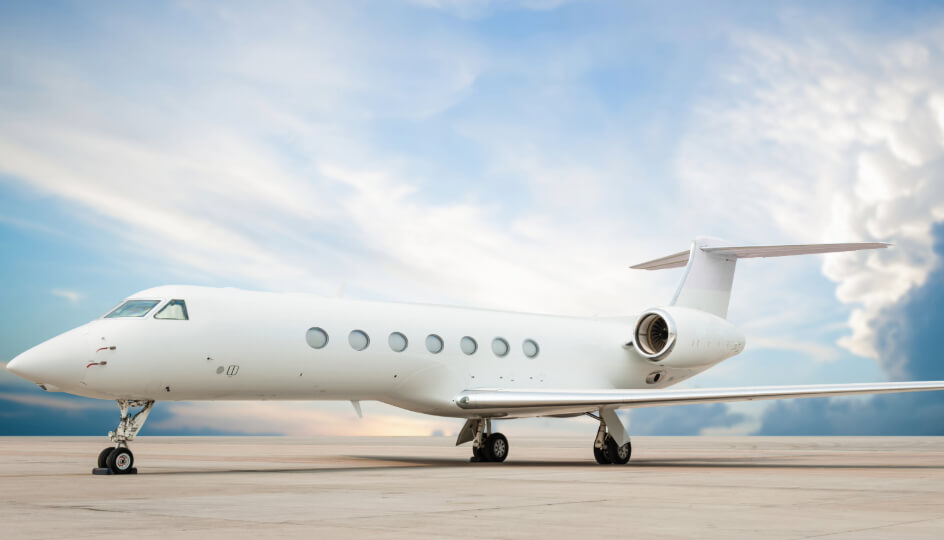How goodwill from lessors has helped airlines reshape their operations during the Covid-19 crisis

The Covid-19 pandemic forced an unprecedented number of airlines to embark on drastic restructurings. Some chose to adapt to the dynamics of the post-pandemic market, others have proceeded under the supervision of bankruptcy courts, and several have had terms imposed by national governments in return for state aid.
Whatever the motivation, restructuring inevitably affects airline fleets. Owned aircraft are sold and leased back to shore up liquidity, while operators of leased aircraft have sought to defer, renegotiate and even cancel rental payments.
“We have seen a huge amount of forbearance from leasing companies to airlines over the past two years,” notes Kevin Butler, Head of Capital Markets – EMEA at TMF Group.
A major reason for such leeway is the lack of remarketing opportunities for aircraft in a passenger market hit by Covid-19. Under normal conditions, many of the aircraft benefitting from deferred rent or usage-based lease contracts would have been repossessed, but financiers have largely supported lessors’ decision to keep them in place under new terms.
No one wants an aircraft returned, especially if it has nowhere to go, so it’s in everyone’s interest to work together and come to some sort of arrangement.
In other cases, lessors have agreed to write off most of their overdue rent with airlines undergoing court-led restructuring – the alternative being the liquidation of the operator and then an unwanted repossession. The net result of these and other goodwill measures has been far fewer aircraft returns than many might have expected during aviation’s worst ever crisis.
“If it doesn’t lead to something as dramatic as a bankruptcy you don’t see a lot of aircraft sent back – unless it’s negotiated,” comments Butler.
That said, aircraft have been repossessed during the crisis from airlines that have collapsed and from those where lessors either see little prospect of rehabilitation or are put off by new lease terms on the table. According to consultancy IBA, 63 airlines either failed or restructured in 2021 and 2022, and it predicts 20 more are likely to follow this year.
More than 2,000 aircraft would be affected by these failures and restructurings, yet so far repossessions have largely been piecemeal. One exception is Indonesia, where large numbers of leased aircraft terminated early. These included units from heavily indebted flag carrier Garuda, which highlighted more than 100 aircraft it wanted to return. In addition, many western lessors ended their relationships with local low-cost carrier Lion Air over missed payments and speculation that the airline might wind itself up to start afresh as Super Air Jet.
When aircraft are returned or taken back en masse from a particular country, lessors may reassess the structures they had in place to facilitate the terminated leases. For example, many Irish lessors use special purpose vehicles (SPVs) in France for onward leases to Indonesia. Primarily, they must ensure that the directors of these SPVs can manage the complexities of repossessions, but thereafter they must consider the future of the SPV itself.
“If the lessor thinks the time horizon is relatively short until aircraft are leased into the same country again, they may keep an SPV in place,” says Butler. “They will also consider the amount of administration a lessor’s home jurisdiction puts on them, both for winding up and for setting up a new entity.”
Where to restructure
The present round of restructurings is notable for how many companies are doing so under the aegis of foreign courts. Several Latin American carriers are proceeding under Chapter 11 Bankruptcy protection rules in the US, while some Southeast Asian airlines have used UK courts.
Ireland’s examinership process is very similar to the Chapter 11 procedure, although it is much speedier and more cost effective. The process may last up to 100 days, during which creditors are not permitted to sue the company. It can only be used if the company in question has a real prospect of survival. The most recent example of this is the successful examinership of Norwegian Air Shuttle ASA and its related companies, which have exited this process.
“Ireland has proven itself a great location for restructurings and plenty of aircraft leasing companies and airlines are taking or have already taken note,” says Hassett.
Schemes of Arrangement are another popular mechanism and an alternative option to examinership in Ireland. They do not require a company to be insolvent but can be used to provide court protection in a similar way to examinership. It is an extremely simplified and straightforward process and as such provides an even more flexible and cost-effective option for leasing companies and airlines.
“It highlights Ireland’s commercial understanding of the aircraft leasing industry and its willingness to give these companies the best possible chance of success,” concludes Hassett.
Talk to us
TMF Group has extensive experience in the lease sector and a deep understanding of the many requirements of aircraft lessors. We manage hundreds of aircraft leases in SPVs around the world, working with both established players and new entrants to aircraft finance.
We work with nine out of the top ten global aircraft lessors. Our clients include lessors, banks, airlines, private equity firms and hedge funds. We can provide you with an end-to-end solution that covers setting up and maintaining the leasing structure and supporting the transactions that fund the aircraft purchase.
Our highly regarded experts provide services that are bespoke to your specific requirements, based in every major jurisdiction used for aviation services. This allows us to move more swiftly than our competitors, providing you with an efficient service anywhere in the world.
Contact us to find out more.





